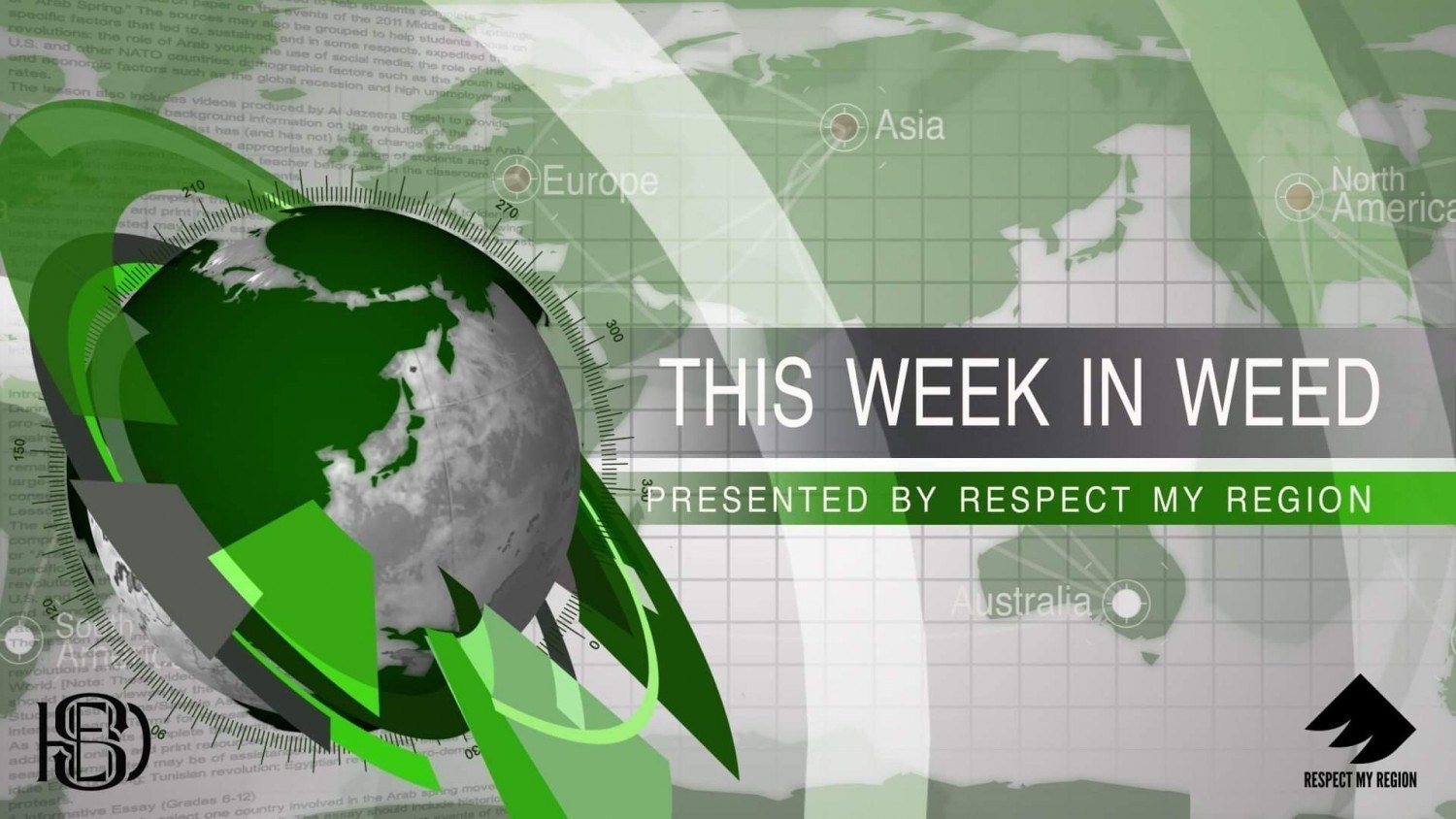This week, we cover cannabis announcements from two federal agencies, a shift in Mexico’s path to legalization, and the “first-ever congressional weed party.” As always, we will also bring you up to date coverage of state-level legalization developments from the past week.
Illinois Congressional Candidate Show Support For Legalization By Throwing A “Congressional Weed Party”
For candidates in a US congressional race, the path to election can be littered with events. Fundraisers, galas, town hall meetings, you name it.
Anthony Clark, an Illinois congressional candidate, decided to break away from the established genres of campaign events. Clark hosted what he called “first-ever congressional weed party in Chicago.”
In a video posted to his Twitter account, Clark can be seen holding a blunt and shot glass at the congressional weed party while speaking his views on cannabis legalization to a room full of cannabis-toking supporters. Clark is a veteran with PTSD, and he cites cannabis as playing a key role in managing his symptoms.
His willingness to share his weed use could very well help him unseat the incumbent candidate, a congressman who has held the position for over twenty years.
USDA Announces Delays In Enforcement Surrounding Two Restrictive Hemp Regulations
For months, the USDA has fielded non-stop requests to alter the federal agency’s restrictive hemp regulations. Farmers and stockbrokers alike have urged them to revisit these policies, claiming that they play a role in stymying the potential for the US hemp industry.
On Thursday, the USDA announced that it would no longer enforce two such regulations.
For the time being, hemp farmers do not have to utilize DEA-registered testing facilities, nor must they destroy “hot” crops.
The requirement to utilize DEA-registered facilities resulted in staggeringly slow testing times. The amount of facilities proved insufficient in handling the explosion in demand for hemp testing following its legalization in 2018.
Additionally, the requirement to destroy crops testing above .3% THC put prospective hemp farmers in enormous risk. Cannabinoid levels in a cannabis plant can fluctuate significantly based on factors outside a farmers control.
The suspended enforcement of these two policies will be under consideration following the current grow season.
FDA Chief Claims Banning CBD Is Not On The Federal Agency’s Agenda
The Food and Drug Administration has kept the market for CBD products on baited breath for quite some time. While the 2018 Farm Bill legalized hemp and hemp-derived substances, the role of CBD in food and drinks remains unclear.
The FDA has consistently stated that it intends to develop rules for allowing CBD as a food and drink additive. However, in the meantime, the federal agency has given off some mixed signals. On one hand, the FDA issued warning letters to several companies for illegally selling CBD products. On the other hand, it has yet to implement a ban on CBD products altogether.
According to FDA Commissioner Stephen Hahn, there is no ban coming. Hahn expressed that implementing a ban on CBD products would be a “fool’s game.” So, while the FDA regulations regarding CBD remain uncertain, the reality of available CBD products is not.
Mexican President Andrés Manuel López Obrador Chooses To Focus Legalization Efforts On Medical Cannabis
Mexico has spent months trying to implement meaningful cannabis legislation on a federal level. They came close to approving such legislation last year, but the attempt was cut short by last-minute disputes. Lawmakers righted the ship, though, by obtaining an extension for the bill.
Following the extension, the process of drafting the legislation seemed to progress promisingly. In fact, many speculated that Mexico was close to implementing full cannabis legalization.
However, on Wednesday, President Andrés Obrador announced a major shift to the impending legislation. Rather than working to legalize cannabis for all adults, Obrador encouraged lawmakers to focus solely on legalizing medical cannabis.
This marks a significant shift in intent for the president, who had seemingly been onboard with comprehensive legalization.
Continued Coverage Of State-Level Cannabis Decriminalization and Legalization Developments
In past months, the spread of cannabis decriminalization and legalization progress throughout the United States has been at a fever pitch. New developments seem to surface on a daily basis, and several states are likely to implement recreational legalization in 2020.
New Mexico

There aren’t enough words to describe New Mexico Governor Michelle Lujan Grisham’s tenacity. She has continually instructed state lawmakers to deliver a cannabis legalization bill to her desk. In 2019, they failed to do so. In 2020, they failed her yet again. Now, Grisham claims that her approach to the issue during the 2021 legislative session may turn the power to voters. Grisham expressed on Thursday that she is open to legalizing cannabis via an amendment to the state constitution. This process would allow New Mexico citizens to vote on a legalization bill, taking the final decision away from lawmakers.
Vermont

In Vermont, a cannabis legalization bill continues to make its way through congress. The bill passed numerous house committees in past weeks, and the house of representatives approved it on Thursday. Although the bill is making progress, each approval process leaves it with revisions. After deliberation by the house of representatives, the bill had two new features. First was a ban on advertising by cannabis businesses, and second was the use of licensing fees to pay for state testing.
Mississippi
In Mississippi, an advocate group campaigned for a ballot initiative that would legalize cannabis. They gained approval for the initiative, and it is set to appear on the 2020 ballot in November. However, state lawmakers appear to be employing a backhanded strategy in order to derail the effort.
Since the initial initiative gained approval, the state has added three new legalization initiatives to the ballot. All three measures would legalize cannabis for medical use only. The presence of these measures will likely split votes, therefore reducing the original legalization initiative’s odds of becoming law.
Ohio

Activists in Ohio claim that a cannabis legalization measure will soon be filed with the state. If they get approval, activists will have until July 1 to gain over 400,000 signatures. In the proposed legislation, Ohio’s medicinal dispensaries would have priority in obtaining licenses to sell cannabis recreationally.
Texas

Texas independently legalized hemp in the summer of 2019, but their path to proper implementation has been a struggle. Primarily, law enforcement agencies have been burdened with distinguishing between legal hemp and illegal, THC-containing cannabis. Many state labs did not have sufficient equipment to test confiscate materials, so agencies began paying for private labs. The Texas Department of Public Safety has since been developing means to effectively test confiscated cannabis. They are on the verge of releasing this new test, but they are not doing so without certain stipulations. Specifically, DPS announced that state labs will not process any requests that relate to misdemeanor possession charges.
RAPPER WEED: WHICH RAPPERS HAVE CANNABIS PRODUCTS IN THE MARKET?
10 UNDERRATED FEMALE RAPPERS YOU SHOULD LISTEN TO RIGHT NOW
9 RAPPERS FROM DETROIT YOU NEED TO KNOW THIS YEAR








